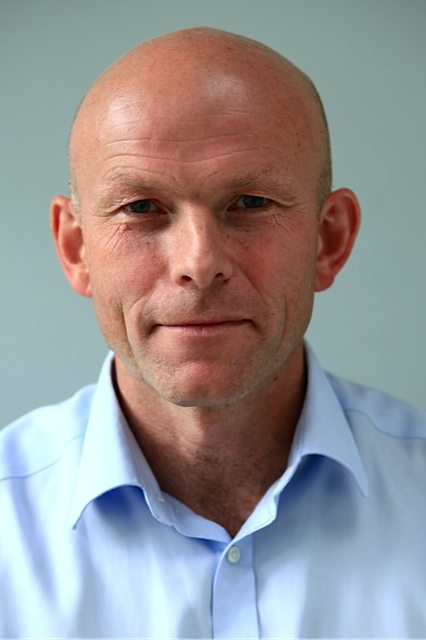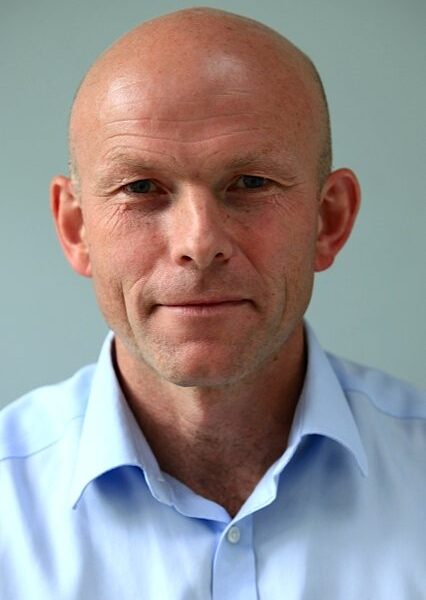

Features
Sustainable financial advice: shouting about sustainability with IFA Richard Essex
Richard Essex, financial adviser at Grayside Ltd in Surrey, gives advice to clients on sustainable, responsible and ethical investment.
He tells Blue & Green Tomorrow about the increasing trend of investors becoming interested in sustainability. He adds, however, that more needs to be done to spread awareness to the mainstream.
How did you get into sustainable, responsible and ethical financial advice as opposed to financial advice more generally?
Well, like a number of people, I started off providing general financial advice. My interest in sustainable and responsible investment (SRI) came through my concern for protecting our environment. In particular, I had been involved in setting up a recycling scheme for local businesses in our area. Then one day it clicked and I realised maybe there was a way of connecting this interest with the slightly drier world of financial advice.
Tell us about your firm, its history, team numbers and what you see as its expertise.
I am a consultant with Grayside Financial Services, which has been operating as independent financial advisers for the last 40 years. We have eight consultants offering advice mainly in the area of personal financial planning. Our core service is offering holistic financial planning to clients. Personally, I have introduced the idea of SRI being part of any individuals financial planning.
I have encouraged other colleagues to take this up, some with more success than others. I however remain very much the specialist within my firm.
Why do you think people should consider investing sustainably, responsibly and ethically?
Because ideally, as an economy, we should be investing this way. Enlightened economic thinking is now pleading that the sustainability of the world economy and planet has to be supported by the right investment right now!
From a practical point of view however, we are starting to see that investment decisions, which take into account environmental, social and governance (ESG) factors have a better chance of being financially sustainable. This is an attractive prospect for the individual investor, especially when you consider the rollercoaster they have been through.
Is there a compromise to be made between getting a return on investment and ‘doing the right thing’?
There may be in the short-term. For example, where a fund is strictly screened a more restricted universe could cost short-term gains.
You have to ask yourself however why certain funds are restricted. It will be because they are seen as having some form of negative effect on the health of our society or planet. I am an optimist and believe that over time, sentiment will move away from these negative stocks.
A good example is tobacco. Although this has always been seen as a good solid financial stock, public sentiment and the shadow of future legislation don’t paint such a great picture for this industry going forward.
Much of the SRI industry explicitly supports the view that ESG sustainability creates greater financial sustainability. I agree.
Are there any sustainable, responsible and ethical funds that people should be looking into and talking to you about?
To some extent it is a personal preference. I am finding that a number of people are showing more interest in funds that are promoting the sustainability idea and linking this with longer term financial return.
What, if anything, is stopping sustainable, responsible and ethical investment from taking off in the UK?
Awareness, awareness, awareness. From experience, once people know these funds are out there they are interested. The call to action however needs to be louder.
What trends have you noticed in sustainable, responsible and ethical investment in the past year?
More organisations are catching on to the idea of ESG. They are also asking the intermediary industry more directly how they can attract a bigger market.
If people do not invest sustainably, responsibly and ethically what is the biggest consequence for them?
Financially – over the longer term – I think there is a greater consequence of instability related to their funds. More importantly, this would only help the decline in the safety and health of the planet we live in.
If you were stuck on a desert island, which famous person would you like to be stuck with and why?
Someone like Bill Bryson because he has the influence, intelligence, and a deep understanding of the planet. I suspect he’s also practical enough to help us get off the island quickly.
What’s your prediction for the next 10 years of sustainable, responsible and ethical investment?
I believe there will be a steady growth of people within the financial services industry who start to see the light. I also think more retail fund groups will take on the idea of ESG sustainability as being important.
Having said that, there is still a huge amount of head-in-sand and ultimately it might need further shocks to the system before there is a more critical mass of acceptance.
Richard Essex is a financial adviser at Grayside Ltd. He is the author of the soon-to-be-published book, Invest, Feel Good, And Make a Difference.
Further reading:
The Guide to Sustainable Investment 2013





























